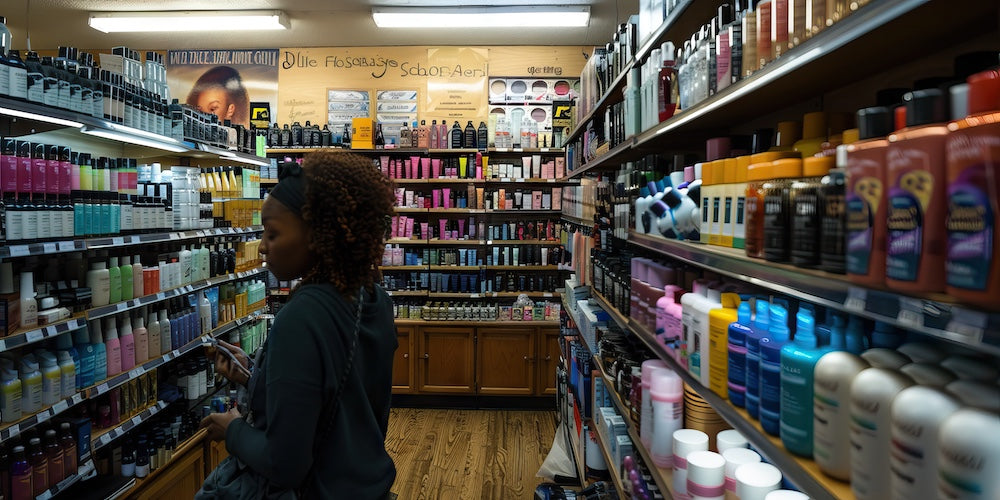In recent years, retailers in the United States have made significant strides in diversifying their product offerings to cater to consumers with Afro-textured hair. Major brands and retailers such as Walmart, Target, and CVS have expanded their ranges of Afro hair products, dedicating shelf space to items like curl creams, moisturisers, and protective styling accessories. This shift reflects a growing recognition of the value and demand for inclusive beauty products, with the Afro hair care market projected to reach $2.51 billion globally by 2028.
Why Are US Retailers Investing in Afro Hair Products?
1. Consumer Demand: According to research, Black consumers spend significantly more on hair care products than other demographics. This has driven retailers to cater to this underserved market segment.
2. Social Movements: Campaigns like the “CROWN Act” and increased awareness around racial inclusivity have pressured businesses to reflect diversity in their offerings.
3. Rise of Black-Owned Brands: The success of Black-owned haircare brands like Shea Moisture, Mielle Organics, and TPH by Taraji has shown the profitability of catering to Afro-textured hair.
Is the UK Ready for a Similar Shift?
The UK, home to a growing and diverse Black population, also has a burgeoning market for Afro hair care products. However, it has historically lagged behind the US in embracing this niche. That said, several indicators suggest the UK may soon follow the US trend.
1. Increasing Representation in Beauty: British retailers like Boots and Superdrug have started introducing more inclusive beauty products, including Afro hair care. Superdrug’s “Shades of You” campaign and its investment in Black-owned brands like Afrocenchix are noteworthy efforts.
2. Demand for Authentic Products: Many Black consumers in the UK often rely on specialist stores or imports from the US. An increase in availability at mainstream retailers could meet a growing demand for convenience.
3. Growing Awareness: Social media movements like #SupportBlackBusiness and #NaturalHairUK have amplified the voices of consumers advocating for better representation in the beauty aisle.
Challenges to Overcome
For UK retailers to fully embrace this market, they must address:
• Lack of Awareness: Retailers must educate themselves on the unique needs of Afro-textured hair, ensuring their offerings cater to a variety of curl patterns and protective styles.
• Pricing: Afro hair care products often come at a premium, which can be a barrier for some consumers. Offering affordable options is key to market penetration.
• Marketing and Placement: Visibility matters. US retailers have shown the importance of placing Afro hair care products alongside mainstream options, rather than segregating them.
The Future of Afro Hair Products in the UK
As consumer demand grows and conversations around inclusivity deepen, the UK is well-positioned to follow the US’s lead. Retailers that prioritize Afro hair products not only stand to gain financially but also contribute to a more inclusive shopping experience.
If you’re a UK retailer or beauty enthusiast, now is the time to champion the inclusion of Afro hair care products. The success stories in the US prove that investing in diversity is not just a trend but a business imperative.
Do you think UK retailers are doing enough to cater to Afro hair needs? Send us your thoughts!

